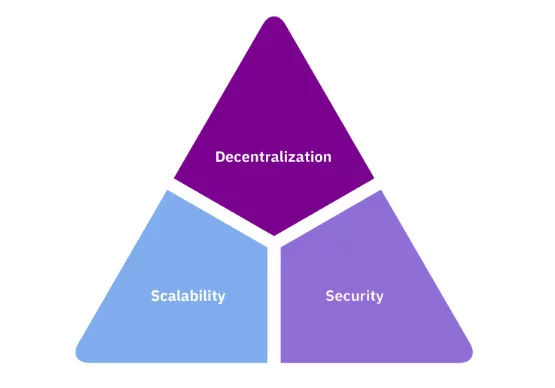第1課
阿拉貢介紹
本模組概述了 Algorand 的起源、目標、在區塊鏈領域的獨特地位、純權益證明 (PPoS) 共識機制,以及平衡可擴展性、安全性和去中心化的方法。

Algorand是由圖靈獎得主密碼學家Silvio Micali創建的區塊鏈平台。其願景是通過一個聚焦於使個人和組織能夠自由進行交易、創新和構建的概念,來創造一個“無界經濟”。
該平臺旨在平衡可擴展性、安全性和去中心化,同時促進所有參與者的可訪問性,支援廣泛的應用,包括去中心化金融 (DeFi)、不可替代代幣 (NFT)、供應鏈解決方案和企業級用例。Algorand使用純權益證明(PPoS)協定,該協定允許每個在網路中擁有股份的參與者為其運營做出貢獻,確保共識過程的公平性,並避免其他系統中常見的權力集中。
阿拉貢旨在支持各種用例,從去中心化金融(DeFi)應用到企業級解決方案。其架構包括智能合約功能和Algorand標準資產(ASA)等功能,允許用戶輕鬆代幣化資產。通過提供這些功能,阿拉貢彌合了開發人員和最終用戶之間的差距,使他們能夠構建和交互具有可伸縮性、安全性和可靠性的應用程式。
阿拉貢的純正權益證明(PPoS)共識機制
PPoS 共識機制是阿拉貢的一個突出特點。與傳統的PoS系統不同,PPoS 優先考慮公平性和包容性。每個 ALGO 代幣持有者都有機會影響共識過程,選擇機率與他們的持股成比例。這種設計確保沒有單一實體可以主導網絡,從而增強去中心化。
共識機制遵循三個主要步驟:
- 區塊提議: 隨機選取單一代幣持有者提議新區塊。該過程既快速又節能。
- 軟投票:一個隨機選出的參與者委員會審查提議的區塊,以確保其符合必要的要求。
- 認證投票:最終委員會對區塊進行認證,確保其安全並將其添加到區塊鏈中。
這些步驟經過優化,可確保在幾秒鐘內完成交易,同時保護網路免受攻擊。在加密可驗證隨機函數(VRF)的驅動下,對隨機性的依賴使得操縱幾乎不可能。

解決區塊鏈三難題

區塊鏈三難題——可擴展性、安全性和去中心化——長期以來一直是大多數平台面臨的挑戰。阿拉貢通過以下方式應對這個問題:
- 可擴展性:網路每秒處理數千筆交易(TPS),只需幾秒鐘即可實現區塊終結性。這是可能的,因為它高效的共識協定,避免了瓶頸。
- 安全性:PPoS 機制可以抵禦攻擊,尤其是針對區塊終結的攻擊。通過依賴隨機選擇的參與者,它可以防止不良行為者預測或操縱共識結果。
- 去中心化:任何ALGO持有人都可以參與共識過程,確保控制權分散而不是集中在大型利益相關者之間。這有助於網絡的公平性。
Algorand 在有效平衡這三個因素的能力使其成為金融、遊戲、供應鏈等各種應用領域的可靠解決方案。
亮點
- 阿拉貢成立的目的是解決現有區塊鏈平台的效率問題,旨在打造一個無國界、去中心化的經濟。
- 該平台定位為可擴展且環境友好的第一層區塊鏈。
- 其純粹的權益證明(PPoS)機制增強了公平性、去中心化和安全性。
- 該網絡的設計著重於快速交易處理和終極性,而不會損害用戶參與。
- Algorand 通過有效平衡擴展性、安全性和去中心化,解決了區塊鏈三難題。
免責聲明
* 投資有風險,入市須謹慎。本課程不作為投資理財建議。
* 本課程由入駐Gate Learn的作者創作,觀點僅代表作者本人,絕不代表Gate Learn讚同其觀點或證實其描述。





